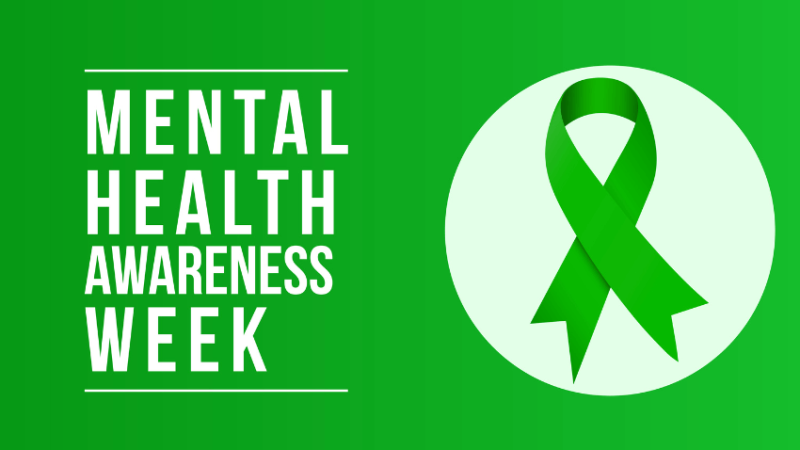Teacher stress – Why my school was a toxic work environment

One anonymous teacher shares their experience of leaving a toxic work environment and offers some advice for others looking to do the same…

- by Anonymous

READ ON TO DISCOVER…
- one teacher’s first-hand experiences of work-related anxiety
- the factors responsible for producing a toxic work environment
- what consequences can be in the absence of sufficient support and self-care
- tips on how to try and improve – and if necessary, ultimately leave – a toxic school
Teaching is stressful. We know that. According to a National Education Union survey, 80% of classroom teachers seriously considered leaving the profession in 2018.
But I always knew it was the career for me and when I stepped into the classroom. I felt like I’d come home.
Book scrutinies and learning walks generated glowing comments. I was a young and ambitious teacher, and within three years I was promoted to the senior leadership team.
However, behind the scenes, I was falling apart. I wasn’t sleeping. I was getting chest pains and I started blacking out.
Under pressure from my wife, I went to the doctor, hoping for a quick cure. Instead, I was diagnosed with work-related anxiety and signed off work. I realised I had to make a change.
It’s taken a year before I’ve felt able to talk about my experience of working at a ‘toxic’ school. It broke me and I almost left teaching.
Thankfully, I managed to escape and I’m now employed by a supportive and encouraging headteacher. Although teaching is still challenging, I’m the happiest I’ve ever been.
Appearances can be deceptive
On paper, the school where I completed my NQT year was highly successful and had a glowing Ofsted report. The pupils were hard working and the books looked fantastic.
However, the cracks soon began to appear. Literally. My classroom wasn’t fit for purpose and the problems weren’t sorted for over a year (and this was only due to a complaint by a parent).
When Ofsted arrived, I was briefed to say that the situation had happened recently and was temporary. Hours before the inspection, a member of staff left and never returned. We were told not to contact her.
The inspectors were positive and leadership was judged to be outstanding. Staff were brought together at the end of the inspection and brusquely told they could have done better. We all silently left school, exhausted and in tears.
Low morale
There was no positive feedback or recognition, and everyone around me was miserable. Staff would constantly discuss leaving but had no confidence to actually make the leap.
When a teacher announced she’d got a job at another school, the headteacher stormed around the corridors shouting and screaming.
A culture of one-upmanship and blame was fostered and everyone seemed to be out for themselves. Although I consistently received good feedback following observations, I became increasingly uncomfortable and began looking for other jobs.
Trending
When I told the headteacher, I was offered a promotion. Despite my misgivings, I decided I couldn’t turn it down.
I was told on day one that my role was to “catch people out”. Teachers would come into school in the morning and find their books had been scrutinised in their absence. It was not uncommon to find teachers crying about feedback they’d been given.
Communication was poor and the headteacher would talk about staff in a personal, degrading manner. Threatening language was used to staff, who were pulled out of lessons with no warning.
I began to attend counselling and other teachers did too. I dreaded SLT meetings as staff were regularly humiliated. Staff felt accountable but not supported and I would spend weekends working and worrying.
Physical and mental effects
I stopped sleeping and my insomnia heightened my sense of insecurity. Being signed off work by the doctor forced me to re-evaluate my life and I promised my wife I would look for work at another school. When I told the headteacher, she told me she could make sure I never worked again.
My self-confidence plummeted even further and I didn’t perform well in my first two interviews. In the morning of my third interview, I resolved that I would leave teaching if I didn’t get the job.
In a more relaxed frame of mind, I actually enjoyed the teaching observation and, during the interview, I realised that I’d had excellent experience of management under challenging circumstances. I was offered the job that evening.
Other side of the coin
It wasn’t until I started at the new school that I realised the full impact of what I had been through. My new headteacher was constantly encouraging and supportive and was transparent about what he wanted.
Staff were loyal to the school and pulled together as a team. The staff room was packed with happy, smiling teachers at lunch time and staff regularly commented that they felt lucky to work there.
Overnight, my chest pains, insomnia and panic attacks disappeared. I felt as though a cloud had lifted but I also felt frustrated that I hadn’t got out sooner.
I suddenly had more energy, and friends and family commented that I was less irritable. I realised that I’d been completely overwhelmed, even though I had been progressing well in my career.
The effect of working in a toxic climate had made me feel worthless and hopeless but now I had renewed energy and I was relaxed and confident in class. I’d come so close to leaving teaching but it turns out it wasn’t me – it was the school.
Survival guide
If your work is negatively affecting your mental health and your school leaders are doing nothing to improve this, the chances are you’re working at a toxic school. Here are some tips on how to survive and even thrive.
- Find another member of staff who you can trust, and talk to them in confidence about the effect the workplace is having on you. It’s essential that you get support and you will probably find that others feel the same. (Do take care to be professional though.)
- Make time outside work to do something that relieves stress. When your mental health is damaged, you can become lethargic and withdrawn.
- Document every incident (including how you responded). If you want to raise a concern, it’s vital that you have evidence.
- If you can, be clear to senior leaders and governors about the aspects of your work that are causing your stress.
- Contact your union. It is helpful in the long term to log incidents with them. Union reps tend to provide a sympathetic listening ear and they will support you in whatever course of action you choose to take. They can clarify what your rights are and, if formal proceedings are appropriate, they can help you initiate this process.
- Start to plan your exit strategy. If your toxic workplace doesn’t improve, you need to think about your next steps. Don’t be afraid to talk to trusted colleagues about what you have to offer to another school. Your self-confidence may be low and this will cause you to underestimate what a good prospect you are. Dig out your CV and see how you could improve it. Sign up for CPD that makes you more employable.
- Take what you can from the experience. As Nietzsche said, what doesn’t kill you makes you stronger. Use the ordeal as a learning experience and, if you find yourself in a leadership position, reflect on the situation and be the supportive leader that you needed back then.










